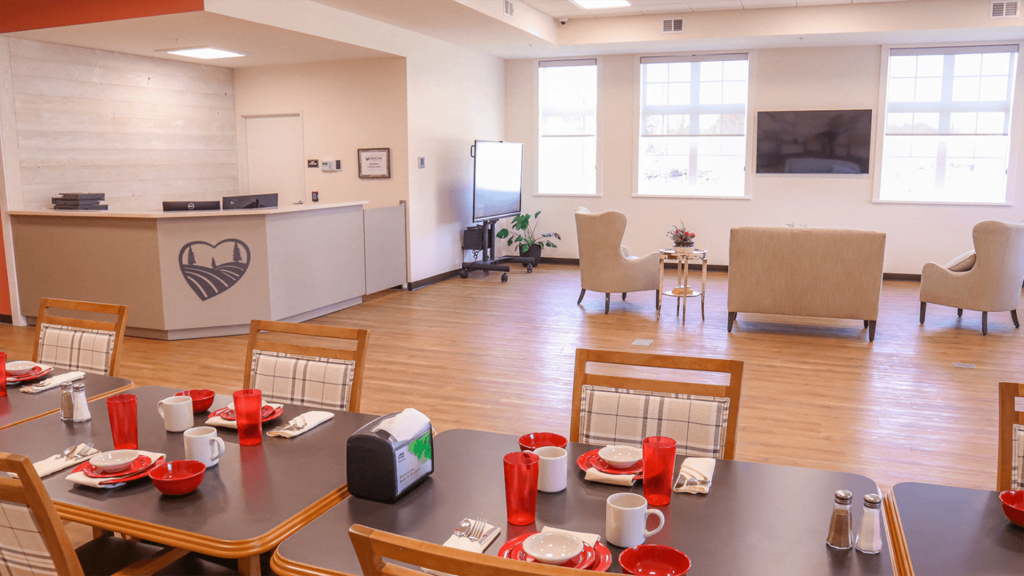Watching a loved one struggle with forgetfulness or cognitive decline can be challenging. While occasional memory lapses are a normal part of aging, consistent and worsening symptoms may indicate a more serious condition like Alzheimer’s disease or dementia. Recognizing the early signs can help families make informed decisions about when to seek professional memory care support.
Early Warning Signs of Dementia and Alzheimer’s
Recognizing the signs of dementia early can help make sure your loved one receives the care and support they need. Symptoms often start subtly and gradually become more severe, impacting daily life and safety. It’s important to observe changes in memory, behavior, and physical abilities to determine when additional support may be necessary. If you notice any of the following changes in your loved one, it may be time to consider memory care services:
1. Frequent Memory Loss
Forgetting names, dates, or recent conversations more often than usual can indicate cognitive decline. While occasional forgetfulness is normal, persistent memory loss that disrupts daily life is a warning sign.
2. Difficulty Completing Familiar Tasks
Struggling with routine activities like preparing meals, paying bills, or using household appliances can indicate memory issues.
3. Confusion with Time or Place
Losing track of dates, forgetting where they are, or becoming disoriented in familiar places can suggest the need for professional care.
4. Changes in Judgment or Decision Making
A decline in judgment, such as poor financial decisions or neglecting personal hygiene, may signal cognitive impairment.
5. Personality or Mood Changes
Sudden mood swings, increased irritability, withdrawal from social activities, or uncharacteristic behaviors can be signs of dementia.
6. Misplacing Items and Inability to Retrace Steps
Frequently losing belongings and being unable to recall where they left them can indicate short-term memory loss.
7. Difficulty with Communication
Struggling to find the right words, repeating phrases, or losing track of conversations can be red flags for cognitive decline.
When to Consider Memory Care
Deciding when to transition a loved one into memory care can be difficult, but there are key indicators that suggest additional support is needed. If their memory struggles are leading to safety concerns, such as wandering or forgetting to turn off appliances, it may be time to seek professional care. Increased difficulty managing medications, personal hygiene, or daily tasks can also signal that living alone is no longer safe.
Additionally, if caregiving has become overwhelming for family members or the individual is experiencing frequent agitation, anxiety, or isolation, a specialized memory care community can provide the structure, support, and social engagement they need. Choosing memory care early ensures your loved one receives the best possible quality of life in a safe, compassionate environment.
Making this decision is never easy, and it’s important to take the time to research different memory care communities to find the best fit for your loved one. Frequent tours and conversations with staff can help you better understand the level of care provided and confirm that your loved one will be in a comfortable and supportive environment. Taking these steps ahead of time can make the transition smoother for everyone involved.
Why Choose The Heartlands for Memory Care?
The Heartlands is a trusted Michigan memory care community offering compassionate support for individuals with Alzheimer’s and related dementias. Our memory care facilities in Michigan provide a safe and secure environment with 12 private apartments designed to accommodate each resident’s unique needs. We prioritize quality care, daily enrichment, and a comfortable living space to improve wellbeing and peace of mind for families.
At The Heartlands, we offer:
- Personalized 24-hour care and support tailored to individual needs.
- Assistance with daily activities, including dressing, bathing, and transportation.
- Professional medication management for safety and accuracy.
- Care and Clinical Services, including
- Nutritious meals served three times daily.
- Housekeeping and laundry services to maintain a clean-living space.
- Emergency pull stations in every apartment for added security.
- Secure living arrangements designed for safety and comfort.
- Engaging enrichment programs facilitated by trained caregivers such as fitness activities, educational speakers’ series, game clubs, community outings, volunteer opportunities, and more!
Take the Next Step in Your Loved One’s Care
If you’re concerned about a loved one’s memory health, don’t wait until a crisis occurs. Contact The Heartlands today to schedule a tour and learn more about our personalized memory care services in person.



